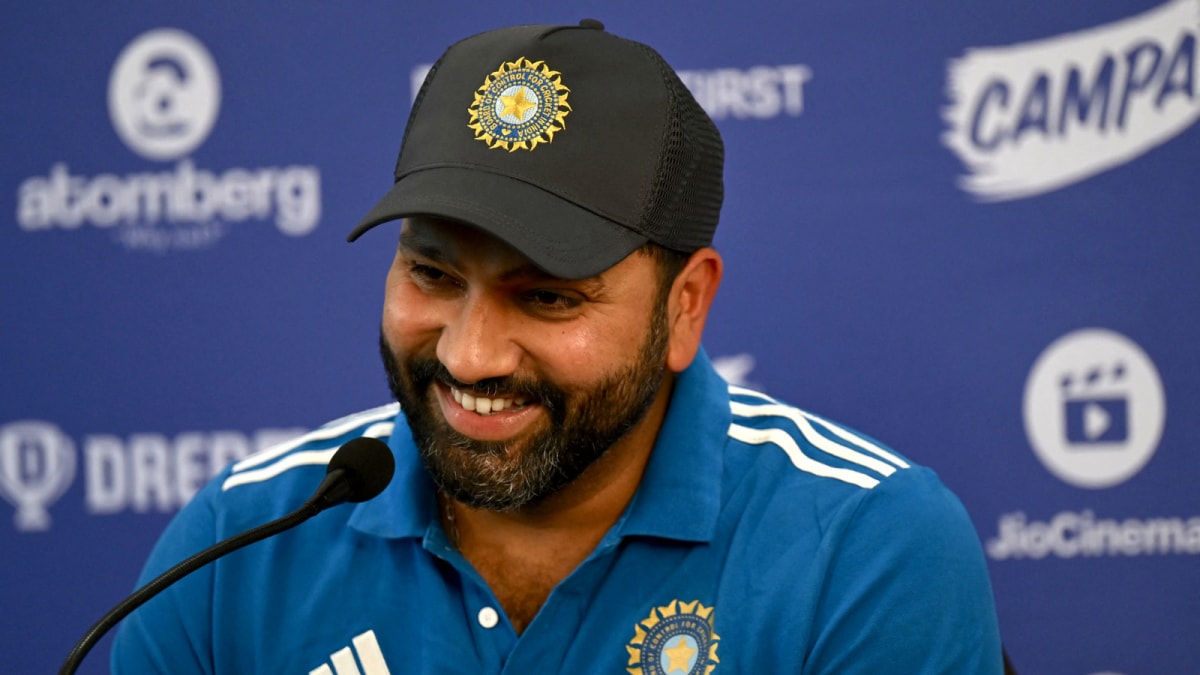 |
|
The recent press conference featuring Indian cricket captain Rohit Sharma took an unexpected turn when a reporter's question regarding the potential influence of his underwhelming Test form on his white-ball confidence elicited a sharp response. Sharma, known for his aggressive batting style and the moniker 'Hitman' in limited-overs cricket, clearly felt the question was inappropriate and dismissive of the distinct nature of the two formats. His retort, a simple yet powerful 'What kind of question is that?', highlighted the perceived disconnect between the reporter's line of inquiry and the reality of a cricketer's ability to compartmentalize their performances across different formats. The incident serves as a fascinating case study in the pressure faced by elite athletes, the complexities of maintaining consistent performance across various formats, and the often-unrealistic expectations placed upon them by the media.
Sharma's response wasn't simply a dismissal of the question; it was a carefully worded assertion of his mental fortitude and his ability to focus on the immediate task at hand. He emphasized the upcoming ODI series against England, asserting that he was 'looking forward to the challenge' and that his attention was firmly fixed on the present, not dwelling on past setbacks. This deliberate shift in focus underscores the importance of mental resilience in high-pressure sporting environments. Elite athletes, constantly scrutinized and analyzed, must possess a remarkable ability to manage their mental state, effectively compartmentalizing past failures and channeling their energy into future endeavors. Sharma's unequivocal dismissal of the reporter's question showcases this critical skill.
Sharma's recent performance in Test cricket has undoubtedly been a subject of considerable discussion and debate. His struggles in the second half of 2024, which saw India lose back-to-back series against New Zealand and Australia, have led to questions about his future in the longer format. Even the necessity of his opting out of the final Test match against Australia fueled speculation about his retirement from Test cricket. This context makes Sharma's decisive rejection of the question even more significant. By refusing to link his white-ball potential to his recent Test struggles, he's not only asserting his confidence but also subtly highlighting the difference in skill sets and strategies needed to excel in both formats. The pressure to perform consistently across all three formats (Tests, ODIs, and T20s) is immense, and Sharma's response demonstrates an attempt to manage that pressure effectively.
The press conference also shed light on India's intended approach to the ODI series against England. Sharma declared that the team would adopt a similar aggressive strategy to the one employed during the 2023 World Cup, although he also acknowledged the need for regrouping and focusing on the present. This showcases the delicate balance between leveraging past successes and adapting to current circumstances. While the team's proven aggressive approach served them well in the World Cup, it's crucial to recognize that circumstances and opposition can vary significantly. Maintaining a consistent level of aggression while adjusting to the specifics of each match and opponent is a complex tactical challenge that only the most adaptable and experienced teams can successfully navigate.
Sharma's comments also highlighted the inherent pressure placed upon modern-day cricket captains. They are not just responsible for their own performances, but also for the team's overall cohesion, strategy, and results. The relentless scrutiny from the media and public further amplifies these pressures. The question posed by the reporter reflects this pervasive pressure, attempting to connect Sharma's personal struggles with the broader narrative of the team's performance. However, Sharma's deft response deflects this pressure, emphasizing the importance of individual focus and mental resilience in the face of external expectations. This incident underscores the mental and emotional challenges inherent in captaining a national cricket team at the highest level.
Ultimately, the exchange between Rohit Sharma and the reporter offers a valuable glimpse into the world of elite-level sports. It highlights the crucial role of mental strength and strategic focus in overcoming challenges, the importance of separating performance across different formats, and the pressure that athletes endure under intense media scrutiny. Sharma's response was more than just a dismissal of a question; it was a statement of his unwavering determination and his ability to focus on what truly matters: delivering performance on the field.
Source: 'What Kind Of Question Is That?': Rohit Sharma Shocked By Journalist's Take On His Form
